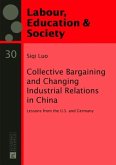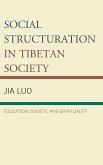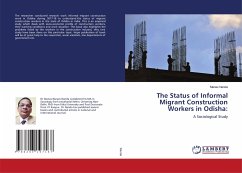This study has been undertaken to find out the empirical viability of Weber's concept of life-chances for explaining the process of class-structuration among the industrial workers. India is marked by caste as the primary basis of stratification. After the attainment of Independence, in 1947, the industrial proliferation paved way to new kinds of relationship. The centuries old caste system which was characterized by its rigidity, ascription and endogamy gradually weakened its hold in the industrial set up. A new system of stratification which was marked by flexibility, openness and achievement orientation emerged. This was known as the class system. The Indian society underwent a transition i.e. from the caste domination to the class emergence. This unique combination of caste and class brought into new kinds of groupings which were not in accordance with the established trends. The Indian society witnessed the emergence of a social structure having dual characteristics. At one hand, people experience large scale mobility because of the prevalence of class as a new stratification order. On the other hand, caste system restricted the mobility because of its rigidity.
Bitte wählen Sie Ihr Anliegen aus.
Rechnungen
Retourenschein anfordern
Bestellstatus
Storno








